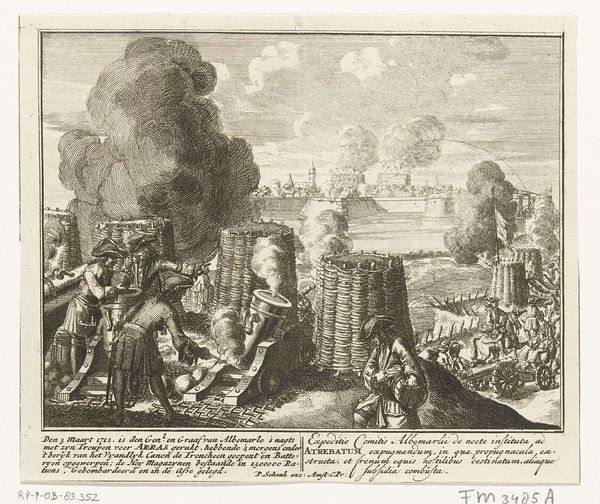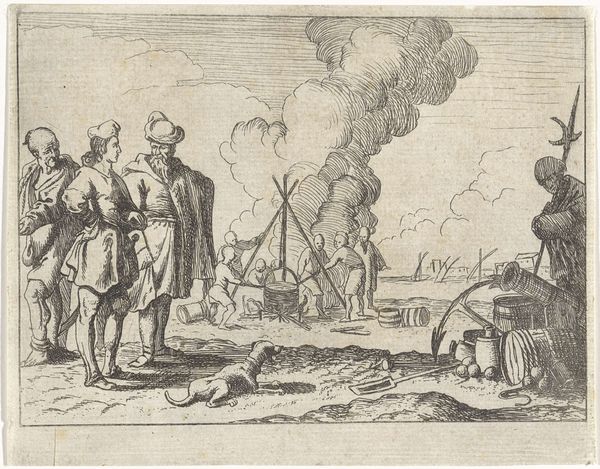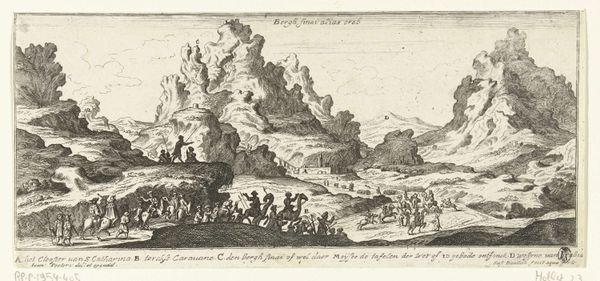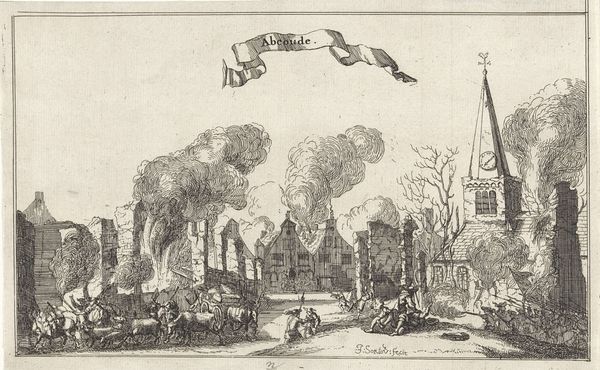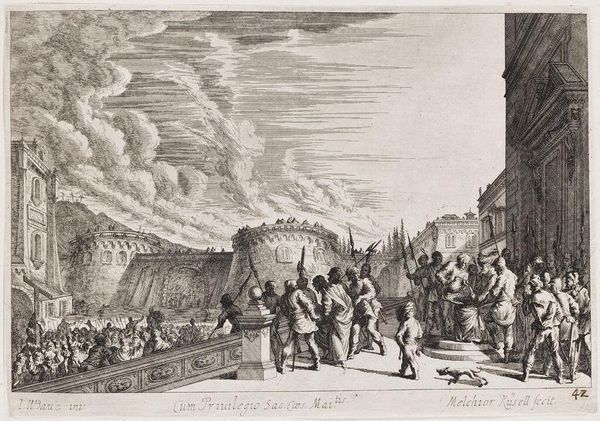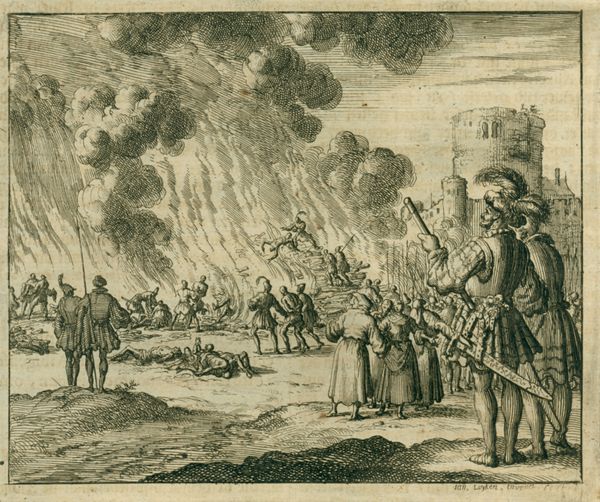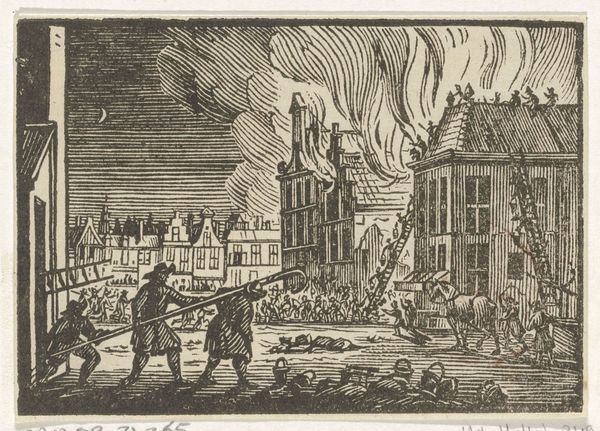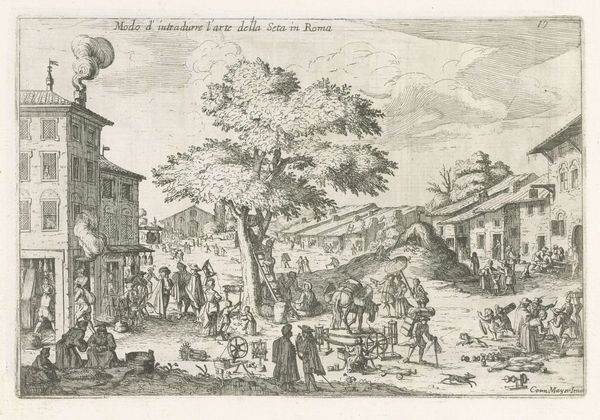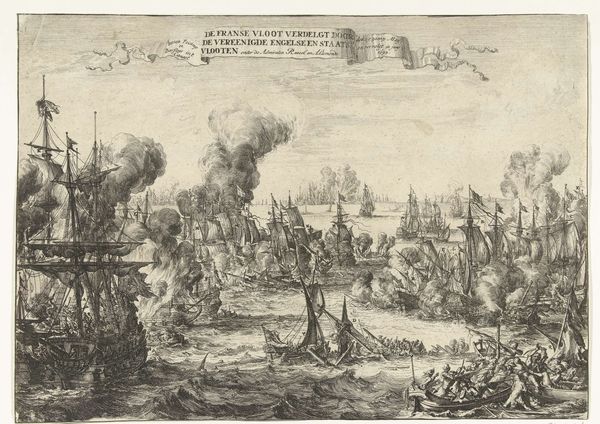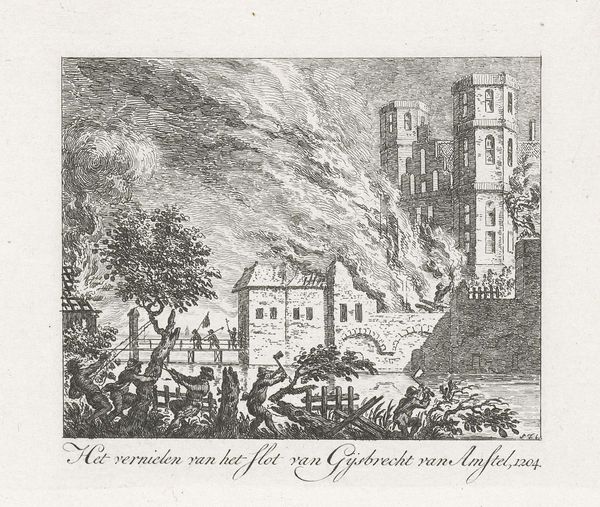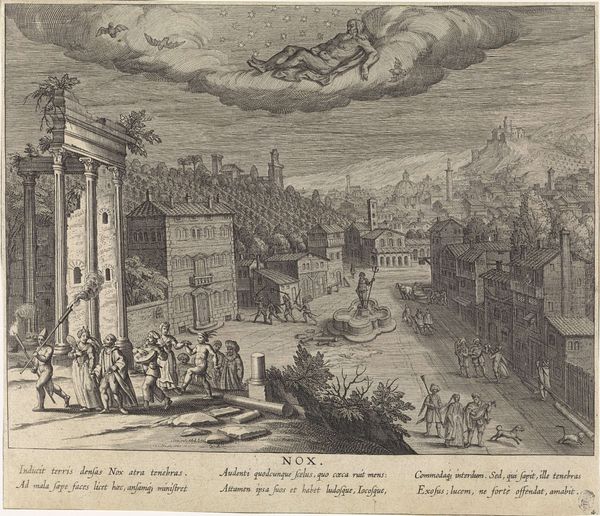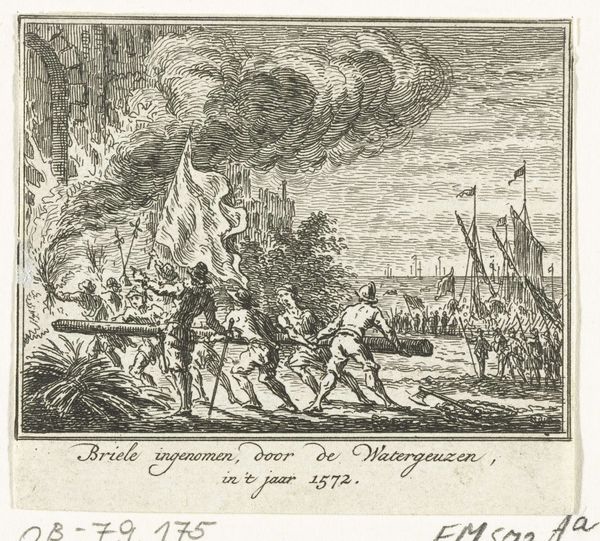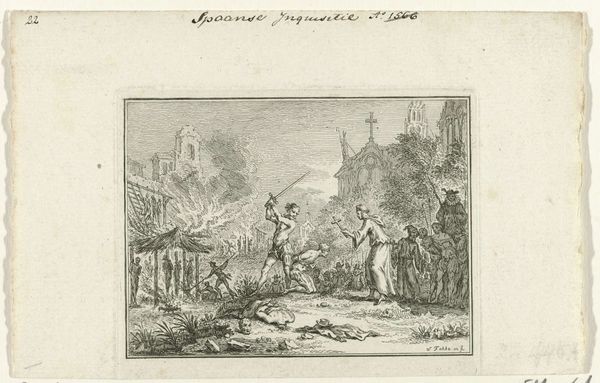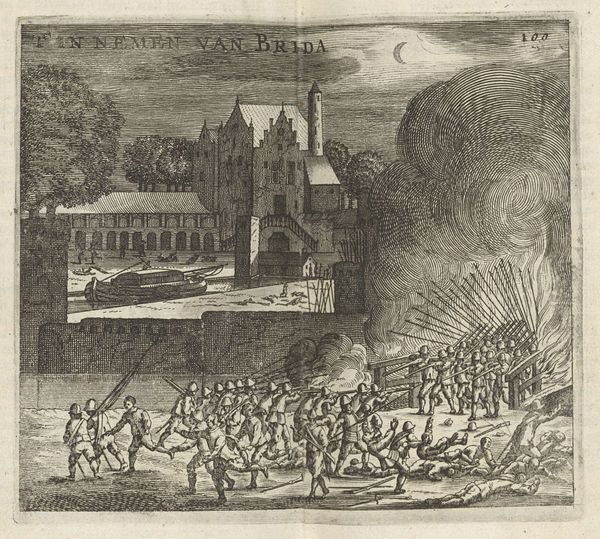
drawing, print, ink, engraving
#
pen and ink
#
drawing
#
narrative-art
#
pen drawing
# print
#
perspective
#
figuration
#
ink
#
line
#
history-painting
#
academic-art
#
engraving
Dimensions: height 85 mm, width 106 mm
Copyright: Rijks Museum: Open Domain
Simon Fokke created this etching, "Johannes Hus op de brandstapel, 1415," sometime in the 18th century. The composition centers on a visual paradox: the stark lines of the execution stake and the billowing smoke, rendered with tight, repetitive marks. This stark contrast between the solid and the ephemeral divides the image, evoking a sense of moral conflict. Fokke uses line work to create depth. See how the background details become less defined? This pushes the burning of Jan Hus into the foreground, making it a focal point for moral contemplation. The very act of etching, a medium of precise, unwavering lines, emphasizes the inflexibility of religious dogma at the time. This work serves as a critical reflection on power. The execution, framed by onlookers and architectural structures, implicates society itself in Hus’s martyrdom. The formal rigidity of the etching, therefore, becomes a signifier for the rigid social structures that condemned Hus. What does it mean to you?
Comments
No comments
Be the first to comment and join the conversation on the ultimate creative platform.
